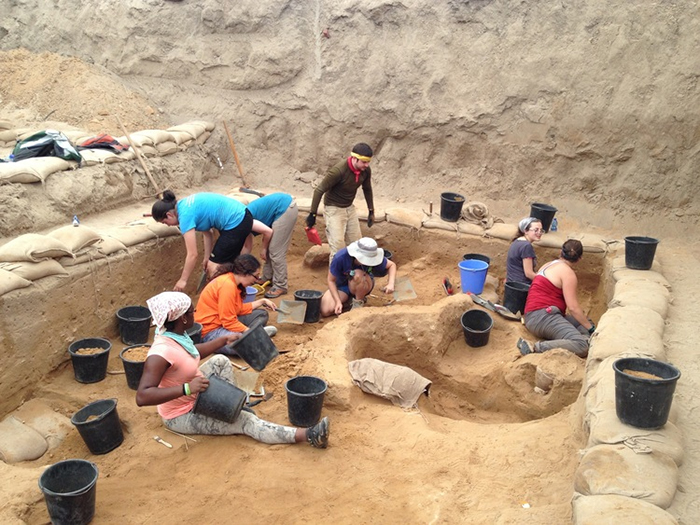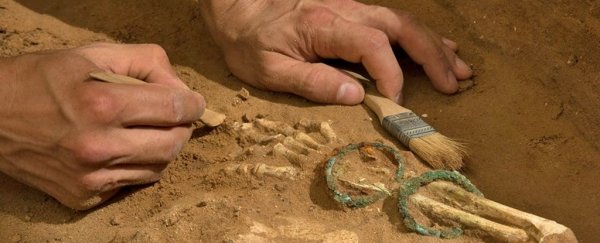Call someone a "philistine" and you're suggesting they're dumb, or uncultured, or both – but is this view of the Philistines of the Bible actually justified?
Thanks to the discovery of an ancient cemetery in Ashkelon in Israel, archaeologists are about to learn a lot more about this group of people – a group that's largely remained a mystery for thousands of years.
In fact, it's the very first Philistine cemetery to be discovered, giving experts the chance to examine human remains as well as objects buried below ground. Already, 200 skeletons have been unearthed at the site.
"After decades of studying what Philistines left behind, we have finally come face to face with the people themselves," one of the leaders of the excavation, archaeologist Daniel Master from Wheaton College, Illinois, told AP. "With this discovery we are close to unlocking the secrets of their origins."
In addition to Wheaton College, researchers from Harvard University, Boston College, and Troy University were involved in the excavation, which has been ongoing since 1985. The cemetery was actually found three years ago, but the announcement was held back to avoid the attention of ultra-Orthodox Jewish protesters, who believe such digs can violate religious law.
The cemetery was found 3 metres (about 10 feet) underground, underneath the site of a Roman vineyard.
Alongside skeletons, the team uncovered decorated juglets (for perfumed oil), weapons, bracelets, and earrings, suggesting the Philistines weren't so uncivilised after all – and meaning we might have to find a new insult for those friends who just don't 'get' art.
 Credit: Leon Levy Expedition to Ashkelon
Credit: Leon Levy Expedition to Ashkelon
The archaeologists say the excavation should give us more clues about Philistine burial practices and where in the Aegean region the group of people were based. "This is how Philistines treated their dead, and it's the code book to decoding everything," said another of the team, Adam Aja from Harvard University.
The remains have been dated to between the 11th and the 8th centuries BC, and further DNA, radiocarbon, and other types of tests are now being carried out to find out more about their background.
Perhaps the most well-known Philistine of biblical times was the Goliath who famously took on David in battle, but we actually know very little about these people, the archenemies of the ancient Israelites.
The archaeologists on the dig are now hoping to glean clues about where the Philistines came from and how they lived their lives. The objects found with the remains seem to be closer to the cosmopolitan way of life of the eastern Mediterranean regions of the time, rather than the more modest village lifestyle of the Israelites.
It's been suggested that the Philistines might have arrived from mainland Greece, Crete, Cyprus, or a part of modern-day Turkey. Again, the new discovery should provide more clues.
"The Philistines have had some bad press, and this will dispel a lot of myths," said researcher Lawrence Stager from Harvard University.
You can find out more about the excavation at the Leon Levy Expedition website.
